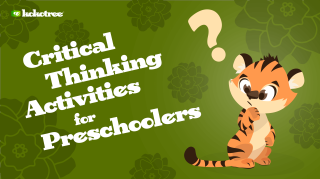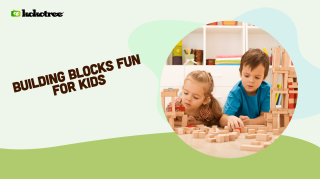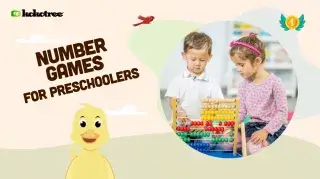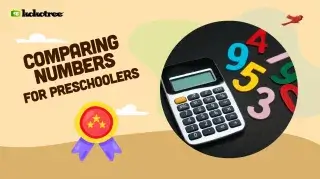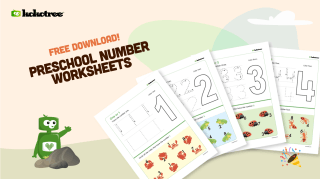Quick Answer: The best way to teach problem-solving is to stop solving problems for your child. When they face a challenge, resist the urge to immediately help. Instead, ask guiding questions: “What could you try?” Give them time to figure things out. Let them experience brief frustration—that’s how persistence develops. The goal isn’t a child who knows all the answers but a child who believes “I can figure this out.”
Why Problem-Solving Matters More Than You Think
When parents think about preparing children for school and life, they often focus on knowledge: letters, numbers, facts. But the ability to solve problems—to face challenges and work through them rather than giving up or waiting for rescue—is more valuable than any specific knowledge.
A child with strong problem-solving skills can figure out new situations rather than floundering when faced with the unfamiliar. They persist when things are difficult instead of collapsing at the first obstacle. They try multiple approaches rather than repeating the same failed strategy. They learn from mistakes instead of being defeated by them.
These capabilities transfer everywhere. Academic success depends on problem-solving: what do you do when you don’t understand something? What do you try when your first approach to a math problem doesn’t work? Social success depends on problem-solving: how do you navigate a conflict with a friend? How do you join a group already playing? Professional success depends on problem-solving: how do you handle unexpected challenges at work?
The child who develops problem-solving skills early carries an advantage into every domain of life. And the developmental foundation is laid during the toddler and preschool years, through the everyday challenges of early childhood.
The good news: problem-solving isn’t an innate talent that some children have and others don’t. It’s a skill that develops through practice and the right kind of adult support. Any child can become a capable problem-solver with the right environment and guidance.
How Problem-Solving Develops
Understanding how problem-solving emerges helps you support it appropriately at each age.
Very young babies solve problems through trial and error, mostly involving their own bodies. They discover that certain movements make interesting things happen. They learn that crying brings caregivers. They figure out how to get objects to their mouths. This is primitive problem-solving, but it’s where the skill begins.
Between twelve and eighteen months, toddlers start solving problems with objects in the world. They shake things, bang things, drop things—experimenting to learn how objects behave. They begin to understand cause and effect in concrete ways: if I push this button, music plays; if I knock over this tower, blocks scatter.
From eighteen to twenty-four months, toddlers start using tools to solve problems—using a stick to reach something out of grasp, pulling a blanket to get a toy resting on it. They also begin to remember solutions and apply them again in similar situations.
Two to three-year-olds can think about problems before acting, at least briefly. They can consider simple alternatives. They begin to ask for help appropriately rather than just dissolving into frustration. They can follow simple problem-solving guidance from adults.
Three to five-year-olds develop increasingly sophisticated problem-solving. They can verbalize problems, think of multiple possible solutions, and evaluate which might work best. They can engage in collaborative problem-solving with peers and adults. They can apply lessons learned from one situation to new situations.
Throughout this progression, what children need from adults changes. Very young children need safe environments to explore. Older toddlers and preschoolers need adults who provide appropriate challenges and resist solving problems for them. The goal at every age is supporting development without short-circuiting it.
The Hardest Part: Stepping Back
The most important thing you can do to build your child’s problem-solving skills is also the hardest: step back and let them struggle.
When your child can’t get a puzzle piece to fit, your instinct is to help. When they can’t reach a toy, you want to get it for them. When they’re frustrated trying to put on their shoes, every parental fiber urges you to just do it. The urge to help is strong, and it comes from love.
But jumping in too quickly robs children of the opportunity to develop competence. Every time you solve a problem for them, you deny them the chance to solve it themselves. Every rescue tells them implicitly: you can’t handle this, you need me.
The struggle itself is where learning happens. When a child tries one approach that doesn’t work, then another, then finally succeeds—they learn far more than if you’d handed them the solution. They learn that problems can be solved with effort. They learn that initial failure doesn’t mean permanent failure. They learn that they are capable.
This doesn’t mean abandoning children to frustration. It means waiting before jumping in. It means tolerating some struggle—yours and theirs. It means finding the zone where challenges stretch your child without overwhelming them.
Watch first. See what they try. Give them time—more time than feels comfortable. Most children can handle more struggle than parents expect, and most parents intervene sooner than necessary.
Guiding Without Solving
When you do engage with your child’s problems, the goal is guidance, not solutions. You want to help them think, not think for them.
Questions are your most powerful tool. Instead of showing a child how to place a puzzle piece, ask “What shape is that piece? Where do you see that shape in the puzzle?” Instead of building the tower for them when it keeps falling, ask “Why do you think it keeps falling over? What could make it more stable?” Instead of resolving a conflict between siblings, ask “You both want the truck. What could we do about that?”
Good questions prompt thinking without providing answers. “What do you think would happen if…” invites prediction and hypothesis. “What have you tried so far?” reviews approaches and invites reflection. “What else could you try?” prompts generation of alternatives. “What’s the problem you’re trying to solve?” helps clarify the actual challenge.
The specific questions matter less than the approach: engaging children’s thinking rather than replacing it with your own.
When you do offer help, offer the minimum necessary. Instead of solving the whole problem, break it into smaller parts and let them solve each part. Instead of demonstrating a solution, give a single hint and step back. Instead of taking over, do one step and return control to them.
The goal is what educators call “scaffolding”—providing just enough support for children to succeed at something they couldn’t quite do alone, then withdrawing that support as competence grows.
Tolerating Frustration
Some frustration is necessary for problem-solving development. A child who never experiences frustration never learns to persist through difficulty. The question isn’t whether frustration occurs but how much and what happens next.
Productive frustration is brief, leads to trying new approaches, and results in eventual success or meaningful learning. It might look like a child trying repeatedly to stack blocks, failing, pausing to think, trying a different approach, and finally succeeding—or recognizing what makes stacking difficult and learning for next time.
Unproductive frustration is prolonged meltdown, complete shutdown, or escalating distress without progress. This happens when the challenge is too far beyond current ability, when the child lacks strategies to try, or when frustration has crossed into emotional overwhelm.
Your job is calibrating challenge to ability. Tasks should be difficult enough to require effort but achievable enough that success is possible. In developmental terms, this is called the “zone of proximal development”—the sweet spot where learning happens.
When frustration tips from productive to unproductive, step in. Break the problem into smaller pieces. Offer a strategic hint. Simplify the challenge. The goal isn’t to eliminate all frustration, but to keep it in the productive range.
Your own frustration tolerance matters too. Watching your child struggle is uncomfortable. The urge to fix and rescue is strong. Developing the ability to sit with your own discomfort while your child works through a challenge is part of supporting their problem-solving development.
Activities That Build Problem-Solving Skills
While problem-solving opportunities arise constantly in daily life, certain activities are particularly good for developing these skills.
Puzzles
Puzzles are problem-solving in its purest form. Every piece requires the solver to figure out where it belongs, trying shapes and colors and orientations until something fits.
Start with simple knob puzzles for young toddlers—the kind with a few large pieces that lift out and fit back in. Progress to interlocking piece puzzles as coordination and persistence develop. By preschool age, many children can handle twenty-four piece puzzles or more.
The value of puzzles goes beyond the final assembled picture. The process of trying piece after piece, eliminating options, making educated guesses based on visual clues—this is the essence of problem-solving. And the immediate feedback (the piece fits or it doesn’t) teaches children to evaluate their attempts and try again.
When your child gets stuck, resist placing pieces for them. Instead, guide their attention: “That piece is really blue. Where do you see blue in the picture?” This supports problem-solving rather than solving for them.
Building and Construction
Block play and construction toys present constant problem-solving challenges. How do you make a tower stable? How do you create an arch? How do you build what you’ve imagined with the pieces available?
Physics provides natural feedback. Towers that aren’t balanced fall down. Bridges that don’t have enough support collapse. This cause-and-effect learning happens through direct experience, not instruction.
Open-ended construction challenges can extend building play. “Can you build something taller than this book?” or “Can you make a house for this stuffed animal?” provide goals that require problem-solving to achieve.
Different construction materials offer different challenges. Simple wooden blocks require precise balance. Duplo and similar interlocking blocks add the challenge of connecting pieces. Magnet tiles introduce new properties to work with. Varied materials provide varied problem-solving practice.
Open-Ended Play Materials
Materials without prescribed uses—boxes, tubes, fabric, sand, water, playdough—naturally promote problem-solving because there’s no “right” way to use them. Children must imagine possibilities and figure out how to achieve them.
A cardboard box can become anything, but making it become something specific (a spaceship, a house, a car) requires problem-solving: how do I cut a door? How do I make it look like what I imagine? How do I fix it when it falls apart?
Playdough presents constant small challenges: how do I make this shape? How do I get it to stand up? How do I combine pieces into something new? The material is forgiving enough that experimentation is easy, but substantive enough that it requires thinking.
Sand and water play offer problem-solving around physical properties: how do I keep the water from draining out? How do I make wet sand hold a shape? How do I build a channel for water to flow through?
The key feature of open-ended materials is that children define their own goals. When goals are internally generated, motivation is high—and motivation drives persistence through problem-solving challenges.
Pretend Play
Imaginative play is surprisingly rich in problem-solving, though it doesn’t look like puzzle-solving.
Consider a group of preschoolers playing “restaurant.” They must solve social problems: who gets to be the chef, who’s the customer, what happens when two people want the same role? They must solve narrative problems: what happens in the story, how do we move from one scene to another, how do we resolve conflicts in the story? They must solve practical problems: what objects represent food, how do we pretend to cook things, how do we handle “money”?
All of this requires on-the-spot creative problem-solving. Solutions must satisfy multiple players with different ideas. Ideas that don’t work get quickly rejected. Successful solutions get built upon.
To support problem-solving through pretend play, provide open-ended props (boxes, fabric, household objects) rather than highly realistic toys. Follow your child’s lead rather than directing the play. When problems arise within the play, resist solving them—let the children negotiate and figure things out.
Everyday Problem-Solving Opportunities
You don’t need dedicated activities. Problems arise naturally throughout the day, and these everyday challenges are problem-solving gold.
During dressing, let your child figure out which shoe goes on which foot, how to manage buttons and zippers, what to do when a shirt is inside out. Yes, it takes longer. Yes, they’ll make mistakes. That’s the point.
During meals, let children serve themselves when possible, figuring out how much fits on their plate, how to pour without spilling, how to eat foods that present challenges. When something spills, engage them in solving the problem: “What should we use to clean that up? How can we prevent spilling next time?”
During play conflicts, resist immediately solving disputes. When two children want the same toy, don’t just set a timer or take the toy away. Instead, present the problem: “You both want the truck. That’s a problem. What could we do?” Let them propose solutions. Their solutions might not be what you’d choose, but figuring it out themselves builds the skill.
During cleanup, let children problem-solve how to fit things back in containers, where items belong, how to organize a messy space. “How will all these blocks fit back in the bin?” is a real problem with real solutions they can discover.
When things go wrong—a tower falls, a drawing doesn’t look as expected, a plan doesn’t work—use these moments for problem-solving rather than rescue. “That didn’t work. What could we try differently?” transforms frustration into learning.
Teaching a Problem-Solving Framework
For older toddlers and preschoolers, you can explicitly teach a simple problem-solving process that they can internalize and apply independently.
The framework is simple: What’s the problem? What could I try? Let me try one. Did it work? If not, try something else.
Model this framework out loud when problems arise. “Hmm, I can’t get this lid off. What’s the problem? The lid is stuck. What could I try? I could try twisting harder. I could try running it under hot water. Let me try twisting harder first… That didn’t work. Okay, let me try hot water… That worked!”
This running commentary sounds unnatural at first, but it makes invisible thinking visible. Children can’t see how you solve problems in your head. When you verbalize the process, you teach it.
Apply the framework to your child’s problems as well, but through questioning rather than telling. “What’s the problem you’re trying to solve?” “What could you try?” “That didn’t work—what else could you try?” Over time, children internalize these questions and ask them of themselves.
Young children won’t follow a framework rigidly, and they don’t need to. The goal is developing the habit of thinking through problems rather than giving up or waiting for rescue.
What Not to Do
Some well-meaning approaches actually undermine problem-solving development.
Solving problems before they happen prevents learning. The parent who sees the child about to carry too many toys and intervenes before they drop them denies the child the chance to discover the problem. Let natural consequences teach when possible.
Giving answers too quickly teaches children to wait for rescue. The pause while they think feels uncomfortable, but jumping in with solutions short-circuits their thinking. Wait. Wait longer than feels natural. Give them a chance to figure things out.
Praising only success sends the message that results matter more than process. Praise effort and persistence, not just outcomes. “You tried three different ways before you found one that worked” recognizes the problem-solving process regardless of whether the solution was elegant.
Dismissing their problems as trivial undermines confidence. The challenge of getting a sticker off the page seems minor to you but is a real problem to your child. Validate their experience even while helping them work through it.
Comparing to other children discourages rather than motivates. “Your sister could do that easily” doesn’t inspire effort—it creates shame and reluctance to try.
When to Step In
Allowing struggle doesn’t mean abandoning children to frustration. Knowing when to help is as important as knowing when to hold back.
Step in when your child has been stuck for an extended time with no new approaches being tried, when frustration is escalating into meltdown rather than leading to new strategies, when they ask for help (though guide rather than solve), or when safety is a concern.
When you do step in, maintain the problem-solving approach. Break the problem into smaller parts rather than solving the whole thing. Offer one hint and step back. Demonstrate a single step, then return control to them. Simplify the challenge rather than eliminating it.
The art is in calibration: providing just enough support that progress becomes possible, without taking over.
Frequently Asked Questions
At what age should I start teaching problem-solving?
You don’t need to “start”—problem-solving development begins in infancy and continues naturally if you provide opportunities. What changes is your role. With babies, you provide safe exploration. With toddlers, you start stepping back to let them struggle. With preschoolers, you can explicitly discuss and model problem-solving approaches.
My child gives up immediately when something is hard. What can I do?
Start with challenges just slightly beyond their current ability—success should be achievable with effort. Praise persistence more than results: “You’re really working hard on that.” Model working through frustration yourself. Break tasks into smaller steps so they experience frequent wins. Gradually increase difficulty as tolerance grows.
How much frustration is too much?
When frustration leads to trying new approaches, it’s productive. When it leads to meltdown, shutdown, or escalating distress without progress, it’s too much. Find challenges where your child experiences some struggle but can succeed with effort. Over time, their tolerance will grow.
Should I let my child fail?
Yes, sometimes. Failure teaches that mistakes aren’t catastrophic and provides information about what doesn’t work. The key is supporting them through failure rather than rescuing them from it. When something doesn’t work, help them reflect and try again rather than giving up.
My child always asks me to do things for them. How do I change this?
Respond with questions instead of actions: “What do you think you could try?” Be patient—learned helplessness takes time to unlearn. Start with tasks you know they can do and gradually increase difficulty. Celebrate independent attempts even when they’re not successful.
How does problem-solving connect to school readiness?
Problem-solving is fundamental to learning. A child who can work through challenges independently is prepared for academic work, which constantly presents problems to solve. A child who gives up or waits for answers will struggle across subjects.
Raising Capable Problem-Solvers
Every problem your child works through independently builds their confidence in their own ability to handle challenges. This self-efficacy—the belief that they can figure things out—is more valuable than any specific solution they learn.
Your role is to provide opportunities, ask good questions, tolerate some frustration, and trust your child’s capacity to think and grow. It’s harder than just solving problems for them. It requires patience you may not feel and restraint that goes against parental instinct.
But the payoff is profound: a child who faces challenges with confidence, who persists when things are hard, who believes fundamentally that they can figure things out. That child carries an advantage into every domain of life.
For more activities that develop thinking skills, explore our guides on sensory play ideas, motor activities for toddlers, and outdoor activities. And for learning activities designed for toddlers and preschoolers, check out the Kokotree app.








